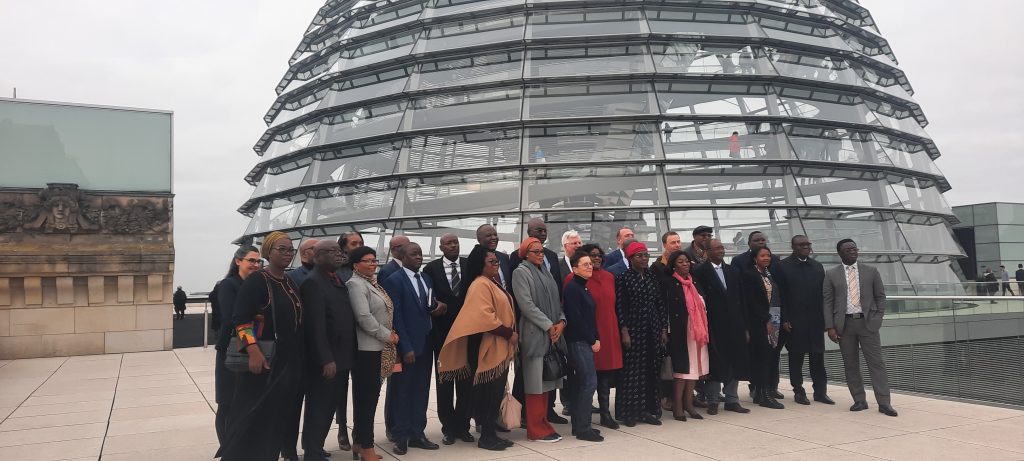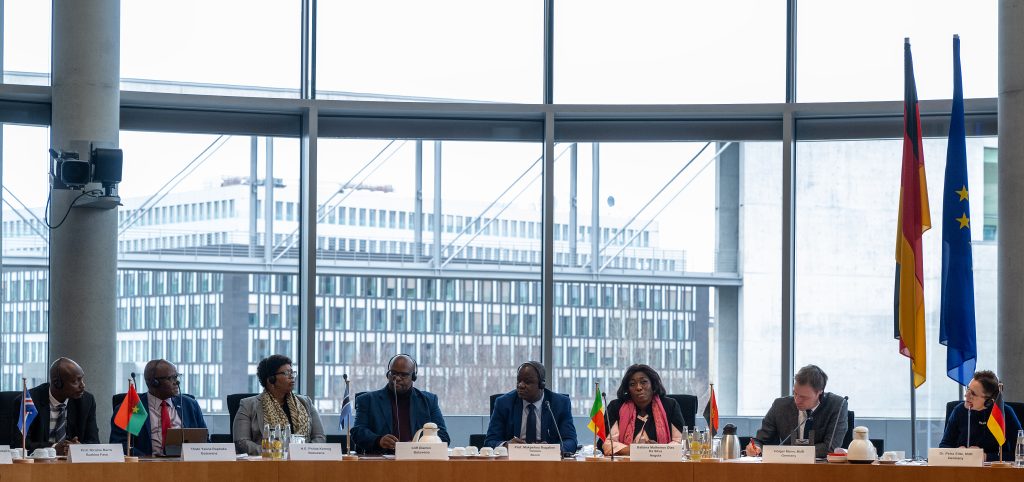
West and Southern Africa Ministers responsible for Climate Change have visited the German Bundestag (The German Parliament), in Berlin, as part of a two-day inter-ministerial meeting to round off a decade of climate partnership between Africa and Germany through the West African Science Service Centre on Climate Change and Adapted Land Use (WASCAL) and the Southern Africa Science Service Centre on Climate Change and adapted land management (SASSCAL).
The German parliament was represented by the vice chair of the parliamentary select committee on education, research and technology, Dr. Petra Sitte, and spokesperson on education, research and technology, Hon. Holger Mann. They conveyed their satisfaction from the German Bundestag to the ministers, highlighting the monumental successes the two institutions continue to chalk over the past 10 years.
The African ministerial delegate was also led by the WASCAL Ministerial Chair, Dr. Amadou Keita , who is also the minister of research and higher education, Mali, and the vice-chair of SASSCAL, H.E. Phildah Kereng who is also the minister of environment and tourism of the Republic of Botswana.
Among the key issues discussed were the success stories of the two institutions and their impact within the continent of Africa, and the need for strengthening the partnership between Germany and the two institutions to achieve the common goal of a successful energy transition through #greenhydrogen and intensifying research, and building wider capacities to succeed in realizing the United Nations Development Goal 13 on climate action.
Speaking at the session with the parliamentarians, Dr. Amadou Keita expressed his delight at the at partnership with Germany and the positive results it continues to generate.
In 2021, WASCAL provided full scholarships to 60 West African students from 15 countries to pursue various master’s programmes in Green Hydrogen. This year, the process has started to admit the new batch of students fully funded by the BMBF; WASCAL recently led the consortium to develop the West African Green Hydrogen Policy Document together with it’s regional head, ECOWAS. The more than 5million euro waste-to energy plant in Ghana which was commissioned by the president of the Republic of Ghana last year; the establishment of the Green Hydrogen Complex in Niger, the launch of the PV2H Project, as part of strategies to contribute to the promotion of the development of green hydrogen for an effective fight against climate change.”
He further highlighted the prospects of green hydrogen in Africa.
“Indeed, green hydrogen has the propensity to transform the geopolitical energy landscape for fossil fuel – depend on countries in spite of their renewable energy potentials”—for example, Egypt, the host of the COP27 climate change conference, has attracted investment pledges of more than $40 billion this year alone for green hydrogen and green ammonia projects. This is a clear indication that Africa is endowed with technical propensity for producing cheap green hydrogen more than any other continent the world over. “ he concluded.
Other ministers from across Africa, also took turns to call on the government of Germany to intensify its support while they also play their roles effectively to deepen the relationship between Africa and Germany.
The Bundestag is the only federal representative body that is directly elected by the German people. Members are elected by the German people and is the forum where differing opinions about the policies the country is pursued, formulated and discussed. The most predominant task performed by the Bundestag are the legislative process and the election of the German Federal Chancellor. The Members of the German Bundestag also decide on the federal budget.


